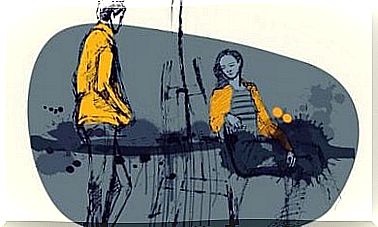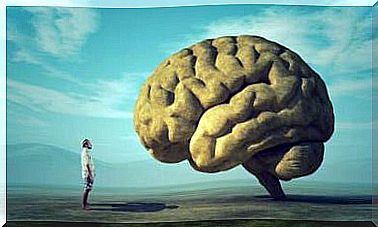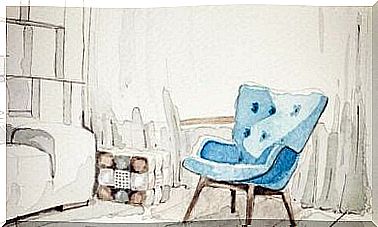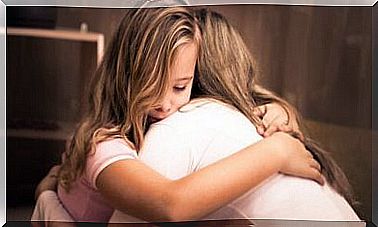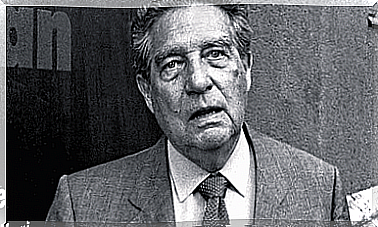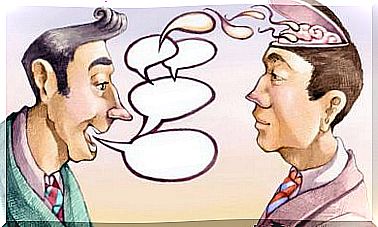Inadequate Emotional Reactions Due To Parathymia
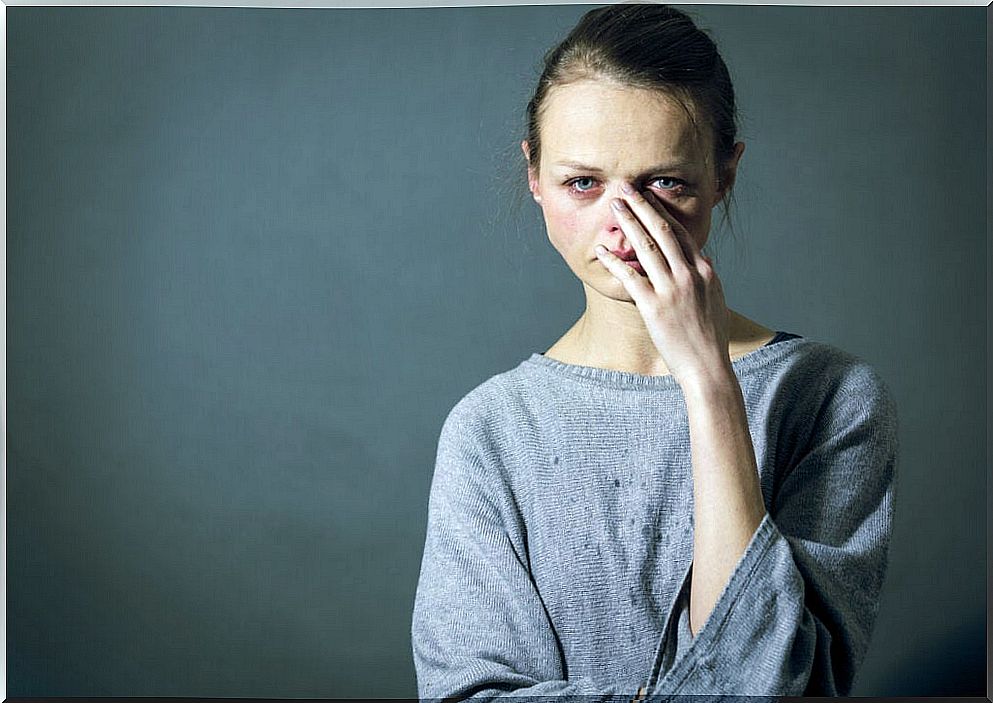
Parathymia is a disorder of affectivity that can be recognized by inadequate emotional reactions. This leads to a dissonance between the current situation or the experience and the expression of feeling. Affected people laugh at a funeral or react with joy when they are angry.
Today we talk about the characteristics of this disorder and how it differs from other disorders. We also answer other questions related to parathymia.
The psychopathology of affectivity
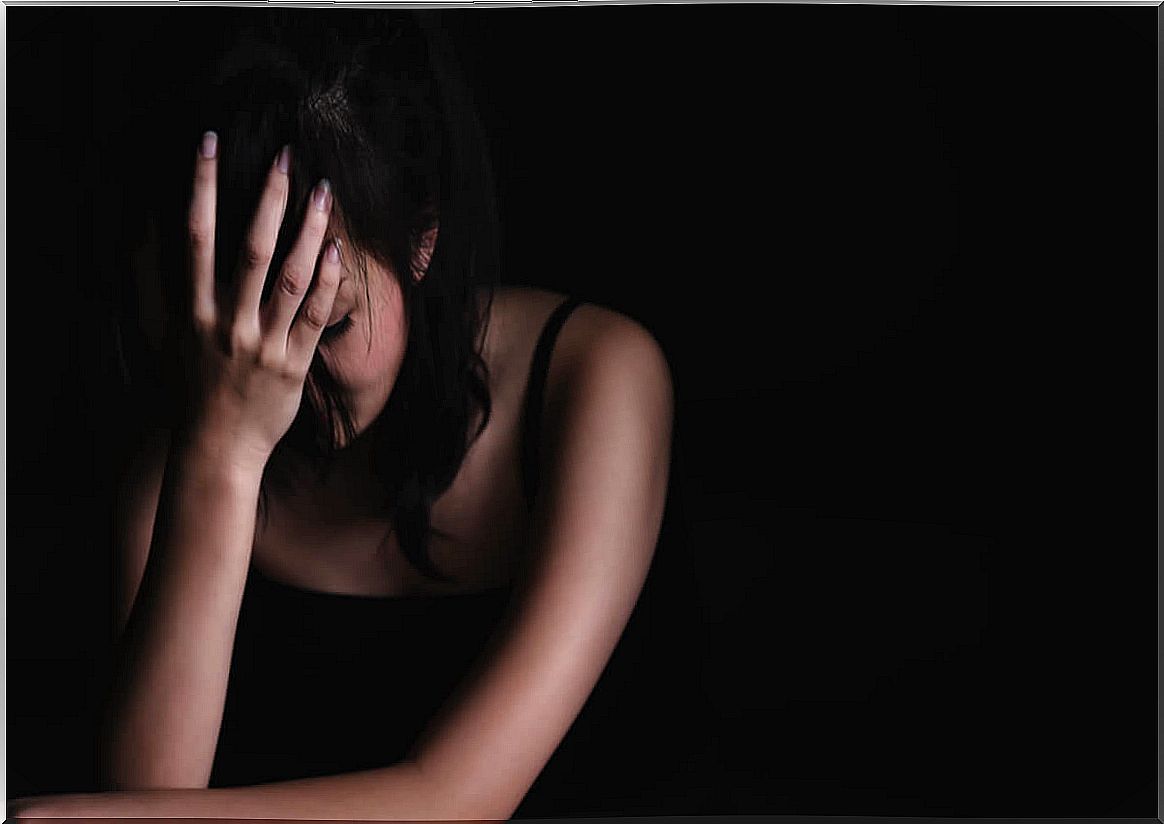
Parathymia is a mood disorder that we will explain in detail a little later. First, let’s briefly explain what a psychopathology of affect is. We are talking about a very specific field of psychology that deals with the study and description of disorders or changes in affectivity. So it’s about affects, feelings and emotions that deviate from “normality”.
The term affectivity describes the emotional and emotional life, i.e. all experiences that define and limit the emotional life of a person and shape their personality and behavior.
So it is a phenomenon of a subjective and idiosyncratic nature. And what is parathymia?
Parathymia: what is it?
It is a mood disorder characterized by the inadequacy of emotional expression in the context in which the person is located. In other words, in parathymia, the outward affect exhibited is inconsistent with the context or environment in which it occurs.
We also speak of parathymia when the facial expression of the person does not correspond to the feeling that they are showing outwardly (e.g. when a person laughs when they are in pain). Parathymia is therefore also referred to as affective inadequacy.
A very vivid example is when a person laughs in sad situations or begins to cry when there is good news. On the other hand, a person suffering from parathymia tends to have reactions that are inconsistent with the content of their experience.
The inadequacy of parathymia
As we have seen, it is an inadequate reaction with a dissonance between the emotional expression (crying …) and the situation (party …) or the gesture (laughing) and the words (the person concerned talks about being sad ).
This inadequacy can also be expressed in terms of the meaning or intensity of the affective expression (the intensity is excessive or less than expected).
Parathymia and other disorders
Affective inadequacy can occur alone, that is, without another mental disorder, but is often observed in connection with various mental or medical disorders.
schizophrenia
The Swiss psychiatrist Eugen Bleuler ( 1857-1939 ) described parathymia as one of the basic symptoms of schizophrenia. He defined incoherence (loss of the coherent order of thought processes), depersonalization (loss or impairment of personality awareness), autism and affective, intellectual or volitional ambivalence as further characteristic signs.
In addition, affective inadequacy occurs particularly in schizophrenia with negative symptoms. According to Dr. Tomás Rodelgo, people with schizophrenia can behave “silly” or with a special childlike joy when parathymia occurs .
Manic-depressive psychosis
Another disorder that is often associated with affective inadequacy is manic-depressive psychosis. The term was coined by Emile Kraepelin in the 6th edition of his book “ Psychiatry ” (1896). It is a disorder of the psychotic spectrum in which there are psychotic episodes that occur with depressive and manic manifestations.
The course does not worsen (in contrast to the course of schizophrenia). Today the term is out of date, experts speak of a “bipolar disorder”.
Organic Brain Syndromes
Parathymia can also occur with organic brain syndromes. This term refers to the change in mental function due to a non-psychiatric illness. The most common causes are poisoning or overdose of substances (drugs), dementia, infections, etc.
Depression or mania
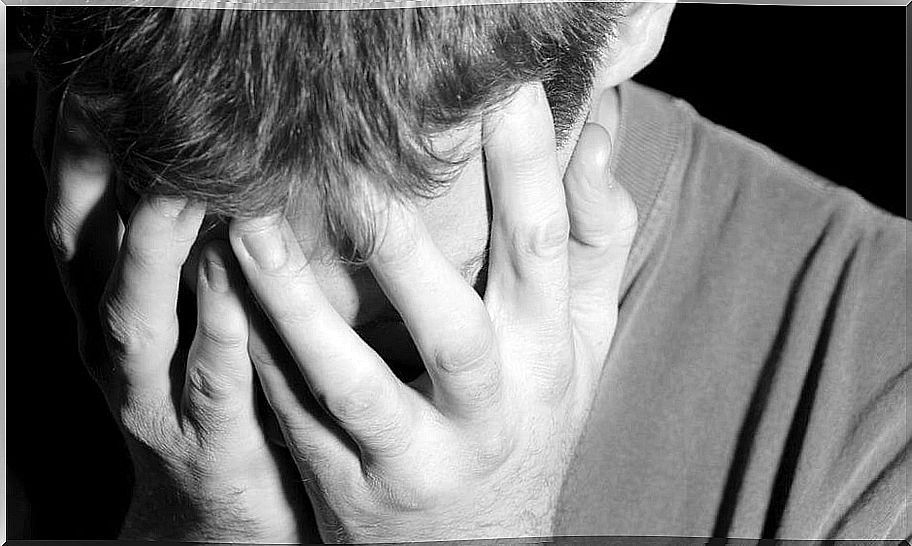
Although this is less common, parathymia can also occur with depressive or manic disorders. These affective disorders are also accompanied by other symptoms.
Depression can also be identified by deep sadness, feelings of guilt, tiredness, insomnia (or hypersomnia), loss of appetite or excessive appetite, and so on. A mania (manic episode) is accompanied by symptoms such as flight of thoughts, distraction, decreased need for sleep, verbal language, psychomotor arousal, etc.
Differences from Other Mood Disorders
Parathymia is not to be confused with other mood disorders. Some of them are:
- Emotional lability : In this case, there are sudden changes in affect and there is no control over the emotions.
- Affective ambivalence : Opposing emotions are experienced simultaneously about the same object or situation.
- Affective rigidity : Here the ability to regulate emotions and adapt them to the context is lost.
- Neothymia : This disorder involves the appearance of a new feeling that is difficult to identify because it has never been experienced before.
Parathymia is a disorder that is ideally treated from a multidisciplinary perspective (including psychiatry and psychology). The key elements here are the causes, the sustaining factors, and the effects on the patient’s life. Appropriate therapy helps those affected to improve their wellbeing.

